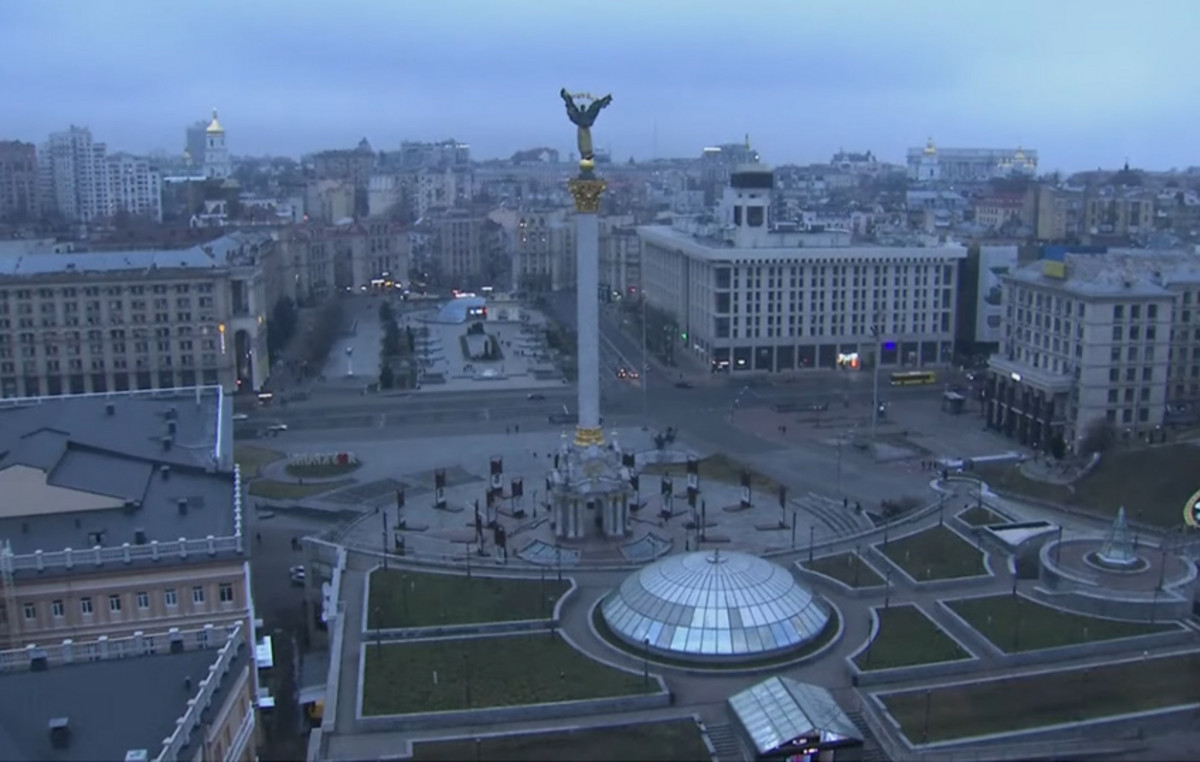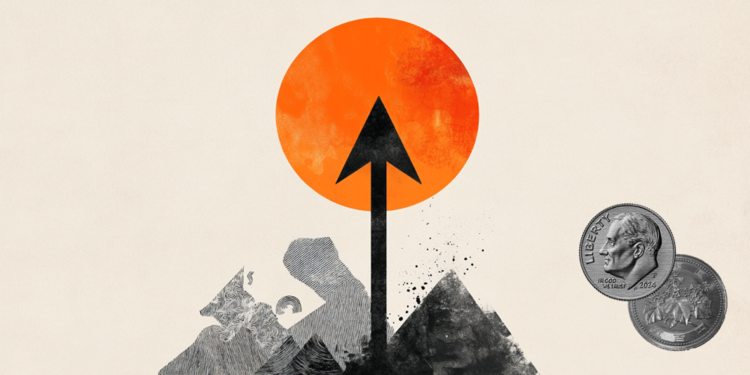The mother of the 17-year-old boy killed by French police during a roadblock has said she only blames the police officer who shot her son for her son’s death. The tragedy sparked three straight nights of destructive riots and reignited a heated debate about discrimination and policing in low-income, multi-ethnic communities.
The boy, Nahel, was shot dead during a traffic control that took place on Tuesday morning (27) in the Parisian suburb of Nanterre. Footage of the incident filmed by a bystander showed two police officers positioned on the driver’s side of the car, one of whom fired his gun at the driver, although he appeared to be in no immediate danger.
According to Nanterre prosecutor Pascal Prache, the policeman said he fired because he was afraid the boy would run over someone with his car.
“I don’t blame the police, I blame one person, the one who ended my son’s life,” Nahel’s mother, Mounia, told France 5 television in an interview for cameras.
Prache said the officer is believed to have acted illegally using his weapon. He is currently facing a formal manslaughter investigation and has been placed in pre-trial detention, CNN affiliate BFMTV reported Thursday.
Despite pleas from senior officials for patience to allow the justice system to run its course, significant numbers of people across France remain shocked and angry, especially men, women and young black men who have been victims of discrimination by the police.
For three nights in a row, that anger gave way to violent protests across the country.
Anticipating a night of riots, France deployed around 40,000 agents on Thursday and sent its elite police force, RAID, to the cities of Bordeaux, Lyon, Roubaix, Marseille and Lille to help quell the protests, which 875 people were arrested across the country, the Interior Ministry announced on Friday morning. Authorities said 249 police officers were injured.
There were clashes between protesters and police in the Parisian neighborhood of Nanterre – where Nahel died days earlier – and in the southern port city of Marseille.
Amid burning rubble, a wall in Nanterre was spray-painted with “vengeance pour Nael”, which translates as “revenge for Nael”, referring to the slain teenager and using an alternate spelling of his name, according to suburban pictures.
A bank was set on fire in Nanterre, according to photos taken at the scene, and 15 people were detained for questioning by police after a march in memory of the teenager turned violent.
Protesters threw fireworks at police in Marseille, according to CNN affiliate BFMTV, while footage from the northern city of Lille showed street fires and riot police running.
Six people were detained for questioning after taking part in a protest banned by authorities in Lille, the regional authority said in a Facebook post.
President Emmanuel Macron will hold a crisis meeting this Friday (30) for the second consecutive day after the violence on Thursday night, BFMTV reported.
The authorities hope to avoid a repetition of the scenes experienced on Wednesday night (28), when police stations, city halls and schools were set on fire in several cities and around 150 people were arrested.
The Interior Ministry announced it plans to deploy 40,000 police across the country on Thursday, 5,000 of them in Paris, to quell possible unrest.
The disturbances began on Tuesday, hours after a police traffic stop in Nanterre resulted in Nahel’s death. Over the course of a chaotic night, 40 cars were burned and 24 police officers were injured, according to French authorities.
The officer was placed under formal investigation for manslaughter and placed in pre-trial detention, BFMTV reported on Thursday.
On Thursday, around 6,000 people, according to BFMTV, joined a march in Nahel’s honor led by her mother in Nanterre.
Many wore “justice for Nahel” T-shirts, while others chanted the same slogan. Some were seen holding signs reading “Police Kill”. A lawyer for the family confirmed on Thursday that the boy’s name was Nahel (he was initially identified as Naël).
Buses and trams in Lille closed after 8 pm local time, according to BFMTV, and some Parisian suburbs have established curfews.
Bus and tram services were also suspended in the Île-de-France region, which includes Paris, from Thursday evening, the local transport authority said.
Government ministers have been asked to postpone non-urgent travel and remain in Paris due to the protests, a government source told CNN on Thursday, speaking on condition of anonymity and citing French professional standards.
The violent scenes of the past two days have raised concerns that Nahel’s death will lead to a level of unrest and unrest not seen since 2005, when the deaths of two teenagers hiding from police sparked three weeks of unrest and prompted the government to enact a state of emergency.
Protests against police brutality
The video of Nahel’s death triggered a similar level of shock and anger across France, touching a sore spot among young black men who feel they have been discriminated against by the police.
A 2017 study by Defenders of Rights, an independent human rights watchdog in France, found that young people seen as black or Arab were 20 times more likely to be stopped by the police than their peers.
Many of these individuals are simply “tired,” journalist and racial equality activist Rokhaya Diallo told the CNN .
“People know and have been talking about police brutality and they haven’t been heard,” he said.
The Algerian Ministry of Foreign Affairs on Thursday conveyed its condolences to Nahel’s family, saying in a statement that his “sadness and grief are widely shared in our country” and that “it will closely monitor the evolution of this tragic case”.
French media reported that the teenager was of Algerian descent.
Video of the shooting in Nanterre surfaced on social media shortly after the incident on Tuesday morning. The video shows two police officers positioned on the driver’s side of a yellow Mercedes AMG, one near the door and the other near the left front fender.
As the car tries to pull away, one of the officers is seen firing his gun.
The bullet that hit Nahel went through his arm and chest. After fleeing the scene, the car collided with an immovable object in a nearby square. Nahel was in the car with two other people at the time of the incident.
One of the vehicle’s passengers was detained and later released, while another, believed to have fled the scene, is missing, according to authorities.
Nanterre local prosecutor Pascal Prache said on Thursday that the two police officers testified that they drew their weapons and pointed them at the driver to discourage him from starting the engine again.
The policeman who fired the gun said, according to the prosecutor, that he was afraid that the boy would run over someone with his car. However, Prache said the officer accused of shooting and killing Nahel is believed to have acted illegally in doing so.
Lawyers for Nahel’s family criticized the decision not to press charges for alleged false statements, claiming that the officer said in his initial statement that “young Nahel tried to run him over with the vehicle”. A CNN asked the French national police for a response to the allegations against the officer who was not named.
Prache said authorities identified Nahel for a previous “breaking of the rules,” but it was unclear what law or order he was referring to. The teen was expected to appear in juvenile court in September.
Laurent-Franck Lienard, a lawyer for the officer accused of shooting Nahel, told French radio RTL that his client acted “in accordance with the law”.
In another interview with BFMTV, he stated that the allegations that his client had lied in his testimony were false, since he had never given written testimony and that his verbal testimony did not contradict the facts.
He claimed his client’s accusation was “political” and used as a way to defuse violent tensions.
As for the deadly incident, Lienard said officers “struggled for 30 seconds” to stop the driver when the car stopped. He added that his client feared for the public’s safety, as the car nearly ran over pedestrians before the video began.
Lienard said his client was not the person in the video screaming “I’m going to put a bullet in your head”, although he also suggested that may not have been what was said.
He added that his client was “devastated” by Nahel’s death and didn’t want to kill him. “He committed an act in a second, in a fraction of a second. Maybe he made a mistake, Justice will tell”, said Liénard.
The debate on racism in France
Macron and other government officials, including Prime Minister Elisabeth Borne, urged patience to allow criminal justice to take its course.
“We need calm so that justice can do its job,” Macron said on Wednesday. “We cannot allow the situation to get worse.”
However, the Macron government is likely to struggle to muster public support and goodwill, given the vast political capital it spent in the first half of 2023 promoting unpopular pension reforms, which sparked months of mass, mostly peaceful, protests.
Recognizing the government’s massive unpopularity, Macron has given himself 100 days to heal and unite the country. This deadline ends on July 14, France’s national day.
Addressing allegations of institutional racism in France is especially difficult given the unique character of the country’s secularism, which seeks to guarantee equality for all by removing markers of difference and making all French citizens first. In practice, however, vigorous adherence to French republicanism often prevents the government from doing anything that might appear to differentiate French citizens on the basis of race, including collecting statistics.
Racial and religious data, when available, often come from private institutions.
“In general, people tend to think that there is no racism in France. And that’s one of the reasons why people are so angry, because they feel and experience racism on a daily basis,” says Diallo, an anti-racism activist.
“Despite this, they continue to face institutions, public discourse and the media that continue to say that there is no racism and that the debate about race has no place in France. And that’s why people are so angry and outraged. ”
Government officials have so far failed to address questions about racism in the police. Leaders of left-wing opposition parties focused their criticism on police violence, not racism. Government spokesman Olivier Veran told BFMTV that, however, anger against the state itself is unwarranted.
“It wasn’t the republic that killed this young man,” declared Veran. “He IS a man who must be tried if justice deems it necessary.”
Source: CNN Brasil
Bruce Belcher is a seasoned author with over 5 years of experience in world news. He writes for online news websites and provides in-depth analysis on the world stock market. Bruce is known for his insightful perspectives and commitment to keeping the public informed.







